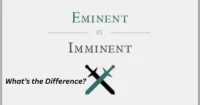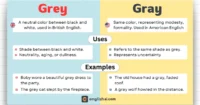Interjections Explained – Definition, Types, and Uses
Published: 8 Nov 2024
Imagine this: you see your favorite dessert and shout, “Yum!” or hear a loud noise and exclaim, “Whoa!” These special words, called interjections, are powerful tools for expressing our feelings instantly. Whether it’s “Hooray!” for happiness, “Oops!” for a mistake, or “Yikes!” for fear, interjections add excitement and emotion to our language. They make conversations come alive and help us share how we feel in the moment.
Ready to explore the fun and expressive world of interjections? Join us as we discuss the meaning of interjections and their different types in this article and provide examples to help you understand how they are used.
Interjection Definition

An interjection is a word or phrase that stands alone in a sentence and expresses strong feelings rather than having a specific meaning.
For example, “Wow, that was amazing!” shows excitement, while “Oops, I dropped my phone!” expresses a mistake. “Hey, look over there!” draws attention, and “Phew, that was close!” shows relief. These words add emotion to language and help us react quickly in conversations.
Interjection Examples in Sentence
Here are some examples of interjections used in sentences:
- Wow! That was an incredible performance.
- Oh no! I forgot my homework at home.
- Yay! We won the game!
- Yikes! That was a scary movie.
- Hooray! It’s finally the weekend!
- Aha! I figured out the answer!
Uses of Interjection
Interjections are used to express emotions and reactions or to grab attention. They are typically short, stand-alone words or phrases that are not grammatically linked to the rest of the sentence. Here’s how and when to use them:
How to Use Interjections:
- Standalone Usage: Interjections can be used by themselves to express a feeling. For example:
- Wow! That’s incredible!
- Oops! I didn’t mean to do that.
- In the Middle of a Sentence: Sometimes interjections are inserted into a sentence to express a reaction but are still separated by commas or dashes. For example:
- Well, I think we should go now.
- Hey, look at that bird over there!
When to Use Interjections:
- Expressing Surprise or Shock: Use interjections when something unexpected happens.
- Oh wow! I didn’t see that coming!
- Expressing Joy or Excitement: When something makes you happy or excited, an interjection adds energy.
- Yay! We’re going to the amusement park!
- Expressing Disappointment or Frustration: Interjections help show feelings of regret or frustration.
- Ugh! I can’t find my keys anywhere.
- Expressing Pain or Discomfort: They are often used to react to something painful or unpleasant.
- Ouch! That hurt!
- Grabbing Attention: Use interjections to call someone’s attention or alert them.
- Hey! Watch out for the car!
- Expressing Thought or Hesitation: When you’re unsure or need a moment to think, interjections like “Hmm” or “Well” can help.
- Hmm… I’m not sure about that decision.
When Not to Use Interjections:
- Formal Writing: Interjections are generally avoided in formal, academic, or professional writing as they are more conversational.
- Overuse: Using too many interjections in a single conversation or piece of writing can make it sound casual or cluttered, so use them sparingly for impact.
Interjections are powerful tools in everyday speech, adding personality and emotion to what we say. Use them when you want to quickly express how you feel or grab someone’s attention!
Types of Interjections
Interjections can be categorized based on their purpose and how they are used. Here’s an explanation of each kind along with examples:
1. Primary Interjections
A primary interjection is a word or sound that functions only as an interjection. These words don’t have any alternative meanings and can’t be used as other parts of speech, such as nouns, verbs, or adjectives. They are usually simple sounds that express strong emotions and may be spelt in various ways.
Examples:
- Ah! That’s so relaxing.
- Yikes! There’s a spider in the bathtub.
- Oof! That was a hard fall.
2. Secondary Interjections
A secondary interjection is a word that typically serves another function, such as a noun, verb, or adjective, but can also be used as an interjection to express emotion or reaction.
Examples:
- Heavens! What a surprise.
- Bravo! You did an excellent job.
- Drat! I lost my keys again.
3. Volitive Interjections
Volitive interjections are used to command or request something. They often convey urgency or a desire for someone to take action.
Examples:
- Hush! The baby is sleeping.
- Hey! Don’t touch that!
- Shoo! Get away from the food.
4. Emotive Interjections
Emotive interjections are used to express emotions or reactions to something. They convey feelings like joy, disgust, excitement, or frustration. Expletives (curse words) are also often used as emotive interjections in informal speech.
Examples:
- Eek! A mouse just ran across the floor.
- Hooray! We’re going on vacation.
- Blech! This soup tastes terrible.
5. Cognitive Interjections
Cognitive interjections indicate a thought process or express a realization, confusion, or understanding. They show that the speaker is thinking or has suddenly figured something out.
Examples:
- Hmm… Let me think about that.
- Ah-ha! I knew you were hiding something.
- Duh! Of course, I should have known.
Interjections and Punctuation
How you punctuate an interjection depends on the situation and how strong the emotion or thought is.
1. Using Exclamation Points
Exclamation points are often used with interjections to emphasize strong emotions, thoughts, or commands. They convey excitement, surprise, joy, or urgency.
Examples:
- Wow! That’s an incredible story.
- Ouch! That really hurt!
- Hooray! We’re going on vacation!
2. Using Periods
When the emotion or thought being expressed is less intense or when the interjection carries a neutral tone, a period can be used. This punctuation indicates a more subdued expression.
Examples:
- Oh. I see what you mean now.
- Well. That’s disappointing.
- Hmm. I need to think about this.
3. Using Question Marks
If an interjection is used to express uncertainty or is phrased as a question, a question mark is appropriate.
Examples:
- Really? That’s what happened?
- Huh? What did you just say?
- Eh? Are you serious?
4. Using Commas in a Sentence
When an interjection is part of a sentence, it is usually set off from the rest of the sentence with commas. This indicates a pause and is used when the emotion isn’t particularly strong.
Examples:
- Well, let’s think about it.
- Oh, I hadn’t realized that.
- Uh, can you repeat that, please?
Using the right punctuation with interjections ensures the intended emotion or thought is conveyed clearly and effectively.
Check Your Knowledge About Interjections
Now, it’s your turn! Pick the right interjection to complete each sentence.
- ________! That dog just jumped over the fence!
(Options: Wow, Um, Oh) - ________, can I borrow a pencil?
(Options: Hey, Ugh, Yay) - ________. I think I’ve figured out the puzzle.
(Options: Hmm, Yay, Aha) - ________! This soup is too spicy!
(Options: Ouch, Phew, Yikes) - ________! You surprised me!
(Options: Boo, Hey, Oops) - ________! I can’t believe we’re finally here!
(Options: Hooray, Hmm, Oops) - ________, that was really gross.
(Options: Yuck, Wow, Hey) - ________! Watch out for that car!
(Options: Ah, Look, Whoa) - ________, I don’t understand this math problem.
(Options: Hmm, Yay, Whee) - ________! I just remembered the answer to the question.
(Options: Oh, Phew, Aha)
Check your answers to see how well you understand the use of interjections!
- Wow! That dog just jumped over the fence!
- Hey, can I borrow a pencil?
- Aha. I think I’ve figured out the puzzle.
- Yikes! This soup is too spicy!
- Boo! You surprised me!
- Hooray! I can’t believe we’re finally here!
- Yuck, that was really gross.
- Whoa! Watch out for that car!
- Hmm, I don’t understand this math
- Oh! I just remembered the answer to the question.
Conclusion
Interjections are fun and powerful words that help us express our feelings and reactions instantly. Whether we’re feeling excited, surprised, frustrated, or even a little scared, interjections allow us to share those emotions with just a word! Imagine saying “Wow!” when something amazing happens or “Ouch!” when you stub your toe—it’s an easy way to show how we feel.
Using them correctly with the right punctuation, like exclamation points, periods, or commas, makes our conversations more lively and full of emotion. So add some excitement, surprise, or even frustration to your speech, and make your words come alive! Keep practicing, and soon you’ll be using interjections like a pro!
FAQs
1. What is an interjection in simple words?
An interjection is a word or phrase that expresses a strong emotion or feeling, like surprise, excitement, or pain. It’s often used on its own and isn’t grammatically connected to the rest of a sentence.
2. Can you give me some examples of interjections?
Sure! Examples include “Wow!” for amazement, “Ouch!” when you feel pain, “Yay!” when you’re happy, “Uh-oh!” for trouble, and “Hmm” when you’re thinking.
3. How are interjections punctuated?
Interjections are usually followed by exclamation marks (!) for strong emotions, like “Wow!” or “Yikes!” For milder feelings or when you’re thinking, you can use a period (.) or a comma (,), like “Well, I’m not sure.”
4. Are interjections used in formal writing?
No, interjections are usually avoided in formal writing, like essays or research papers. They are more commonly used in casual conversations, stories, or creative writing to express emotions.
5. What is the difference between primary and secondary interjections?
Primary interjections are words that only work as interjections, like “Ouch!” or “Wow!” Secondary interjections are regular words that can also be used to show emotion, like “Heavens!” or “Drat!”

- Be Respectful
- Stay Relevant
- Stay Positive
- True Feedback
- Encourage Discussion
- Avoid Spamming
- No Fake News
- Don't Copy-Paste
- No Personal Attacks



- Be Respectful
- Stay Relevant
- Stay Positive
- True Feedback
- Encourage Discussion
- Avoid Spamming
- No Fake News
- Don't Copy-Paste
- No Personal Attacks





